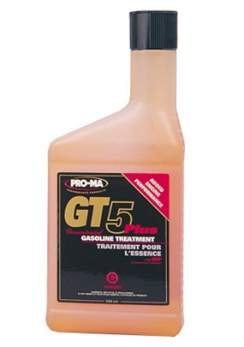|
What do we need in diesel fuel additives?There are several things to look for in diesel fuel additives, and this may help you find fuel saving additives. #1. Water Control We have determined that water in fuel is not good, and we know that it gets in either through condensation, or by buying it with the fuel, or possibly leaking in somewhere. (not good!) (Don't miss this illustration on how to get rid of water safely) Good water control means that the water is always being removed from the system, and there are several ways that this can be done. One way is by using an alcohol type additive, because alcohol does have an effect on water. One problem that comes with this is that alcohol breaks the water up, and actually tends to group it together, and move it through the system. This sounds good, but it could actually do more damage than good, because water at more that 4 microns in size is abrasive to a diesel injector tip. So what can happen is that alcohol can get the water moving, but if it breaks it up, it can move water at too large a size for the safety of the injector tips. Look for diesel fuel additives that will break the water down, not up. I know this may sound confusing, but what you want is to have the water to break down into small particles so that it can pass through the system, and get burned, and pass as steam out the tail pipe. This will happen, if you get a product that has the right affect on the moisture in the fuel. Through normal agitation from driving, the water can be broken down into small particles of 1 micron in size, and can then move through the pump, safely past the injectors, and turn into steam during combustion. Click here to see a simple illustration of how this works #2. Cleaning action. A good fuel treatment will also work at keeping the system clean, and clean up gently what has built up from past engine life. There will often be carbon deposits built up around the rings, some times there is a ridge at the top of the piston stroke, or the injector tips may be fouled or clogged. A good additive will have a detergent action, and should rather work slower than faster. The last thing you need is to have a piece of carbon break loose and score the piston. If it works slowly, it can soften and clean gently, and over time get the system in cleaner condition. #3. A lubricant. This is really getting alot of attention these days with the ULSD fuels now used so commonly. The sulpher level has gone from 5000 ppm a few years ago, to 500 ppm, and then to 15 ppm. There are more and more problems coming to the surface relating to fuel issues, and we see many dealerships having more injector pump failure, leaking seals, etc. Many manufacturors are now promoting a lubricant of some sort, the fuel suppliers are making them available, and the consumer at large is more open to using an after market additive than ever before. What to watch for in a lubricant is what effect does it have on the rest of the system? We have likely all heard of the easy fix to the lubricant issue by pouring in a bottle af ATF. Tranny fluid. That is still what some people are recommending, I was at a trade show today and heard that again! Unbelievable! The problem with that is that as it burns, it can leave a ash residue, which will be unfriendly to converters and particlulate filters, as well as environmentaly unfriendly, because of the improper burn. A better solution is to get a product with a lubricant that is ashless, and that will lubricate the system without leaving ash residue behind. #4. Anti-gelling. Fuel has a pour point, which is the temperature at which wax laden fuel will barely flow. A good product should lower the pour point a number of degrees, and should reduce or eliminate the tendancy for fuel filters to block the fuel flow in wax laden fuel in low tempereatures. #5. Efficiency improver. All these things mentioned are great, but how does this pay for itself? Having these benefits mentioned above will offer some long term savings, but how about now? Look for a product that has the ability to improve fuel economy on top of all these other benefits. There needs to be some extra efficiency benefits to save you a couple or 5% to pay for the product. If it can do that for you, then it will not be costing you much at all, or very little to run the additive. |
Earn Up To $10K Per Month Using A Method Called 'The Waterwheel System'
Vacation For Up To 90% Off Expedia's Best Prices
Feature Product
Gas Treatment

30 Gratitude Challenge!

Revolver Map


